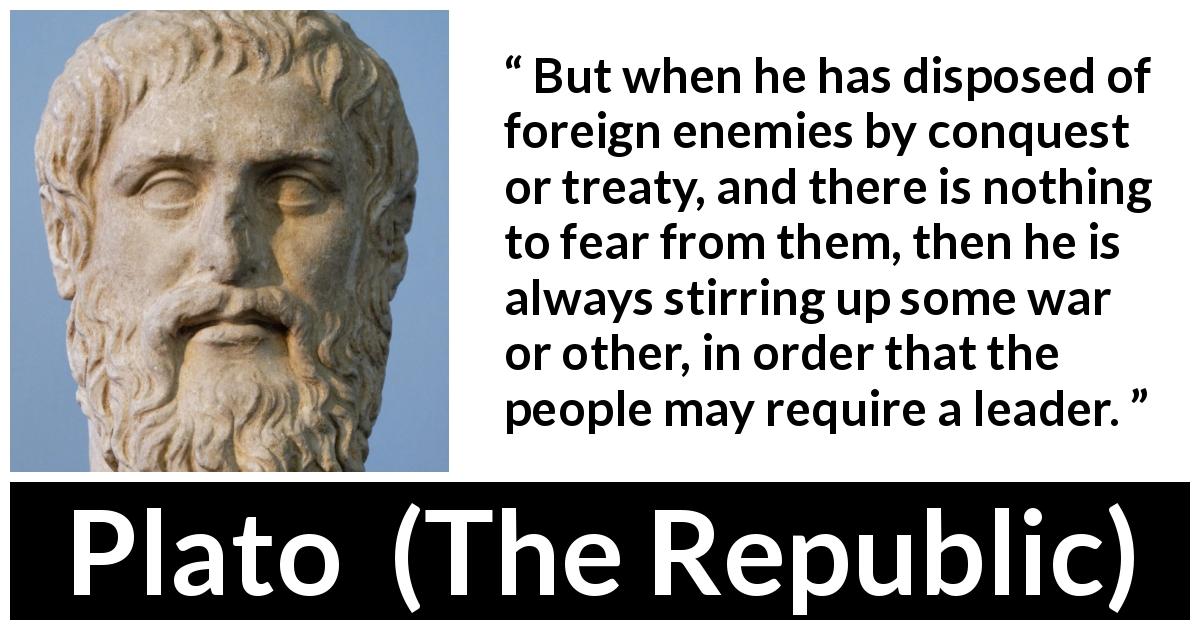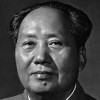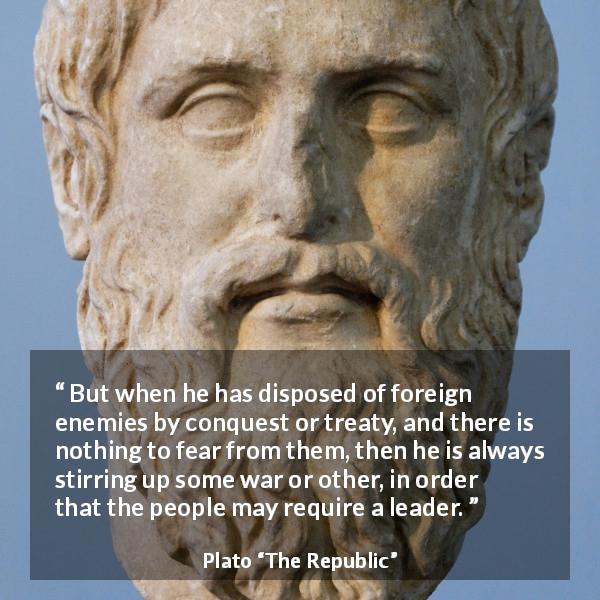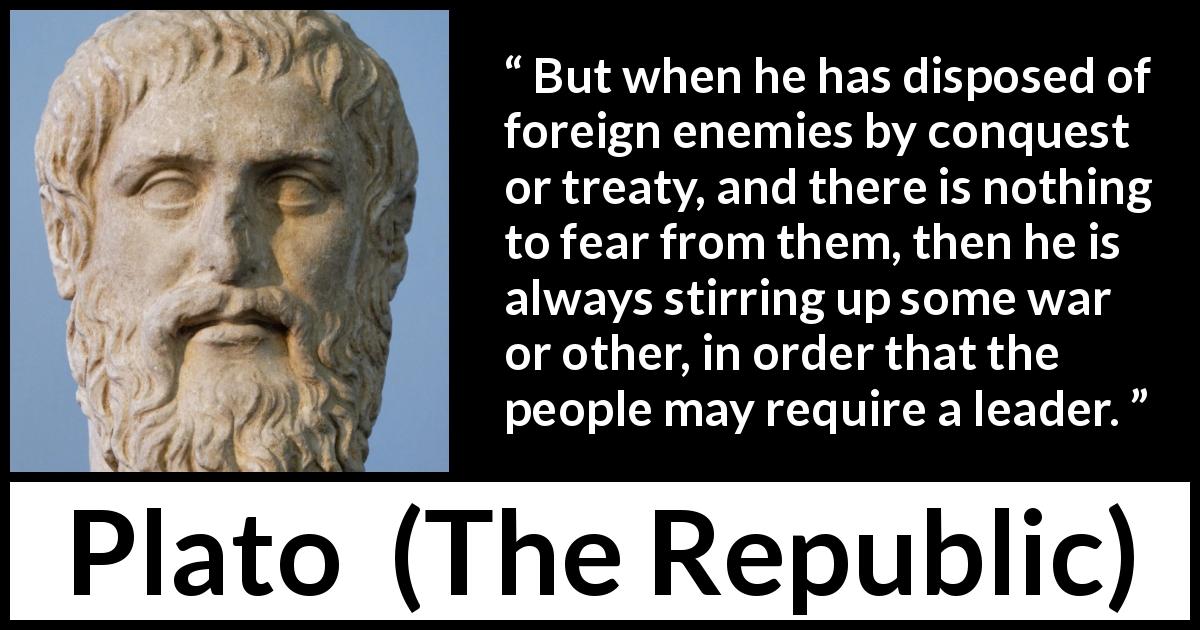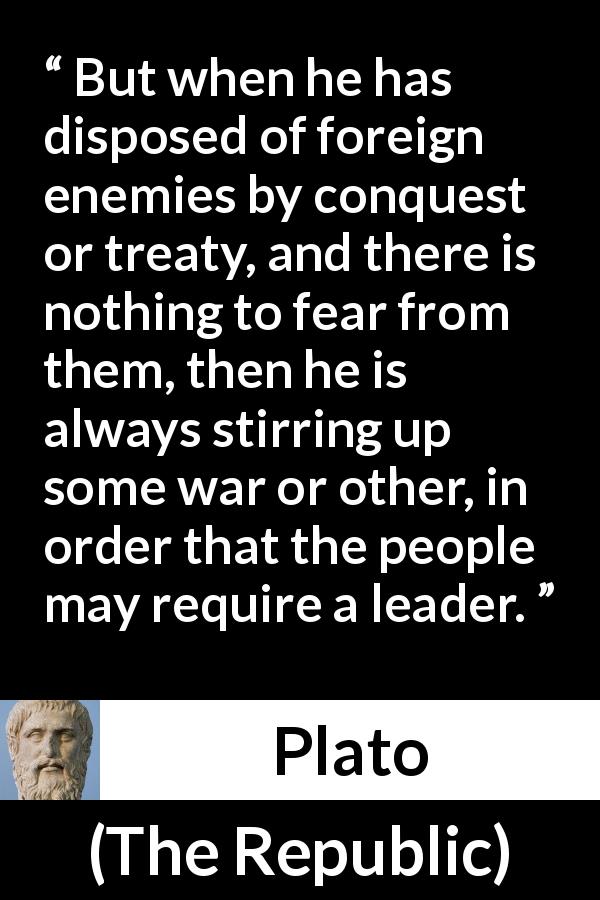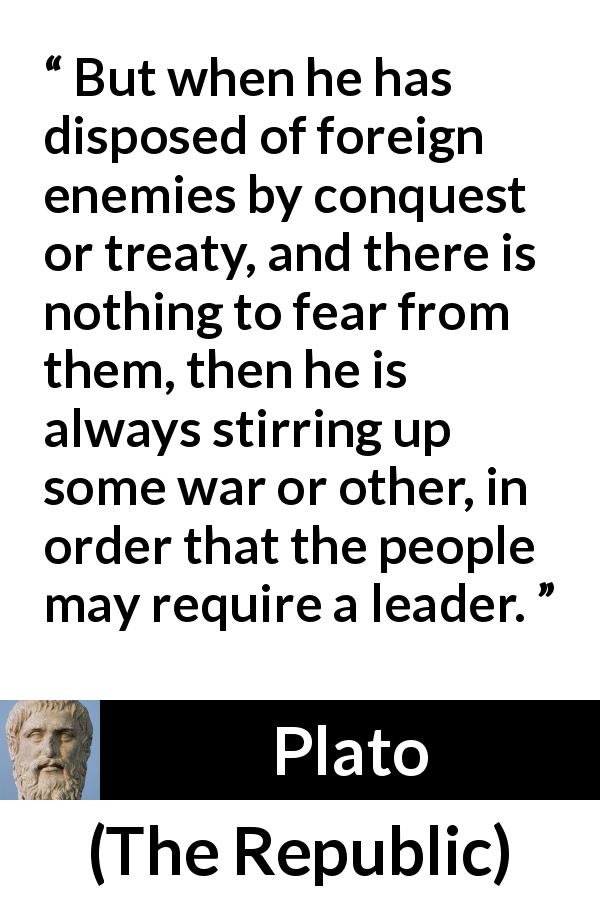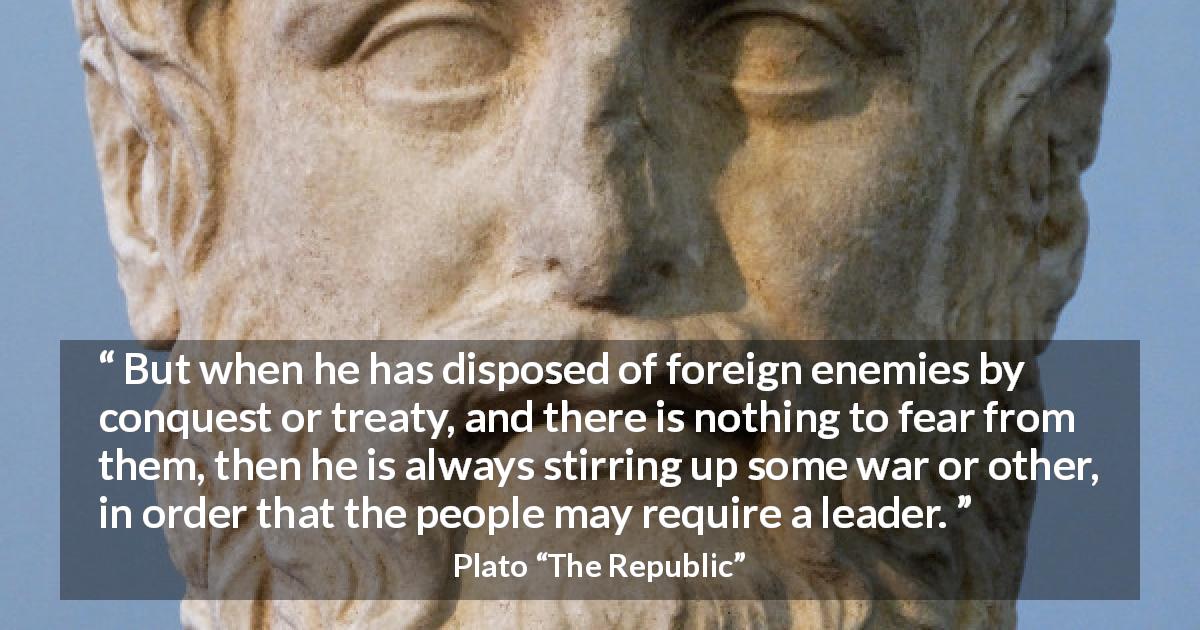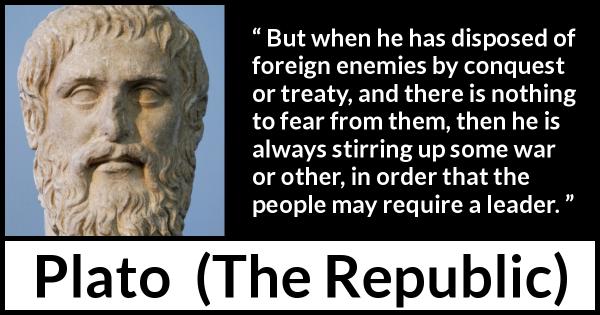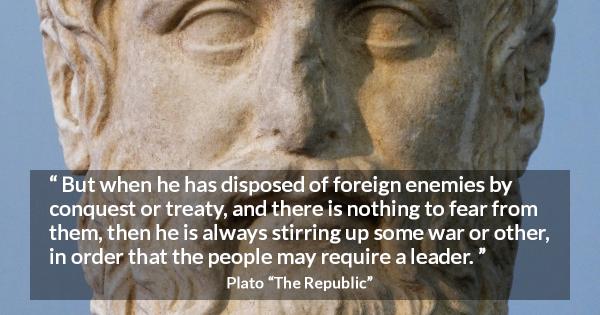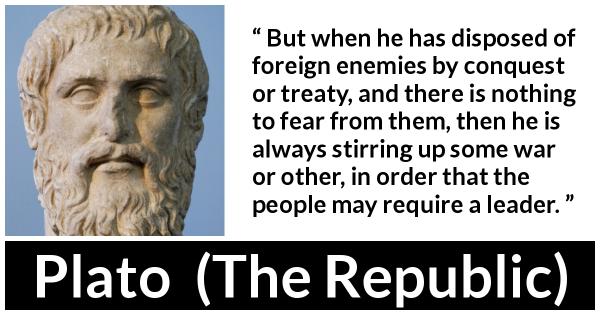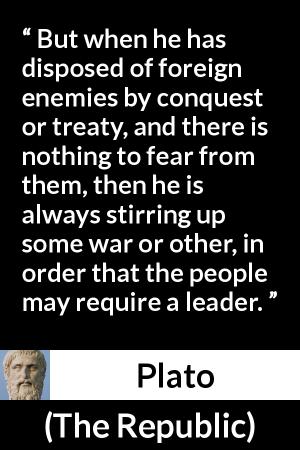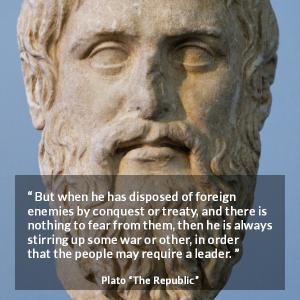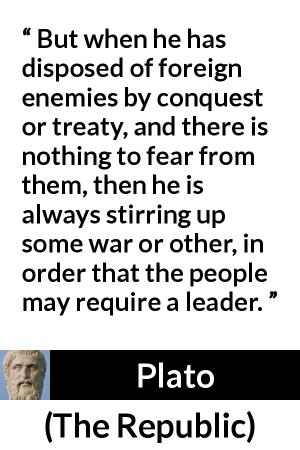“ But when he has disposed of foreign enemies by conquest or treaty, and there is nothing to fear from them, then he is always stirring up some war or other, in order that the people may require a leader. ”
Plato, The Republic. copy citation
| Author | Plato |
|---|---|
| Source | The Republic |
| Topic | fear leadership war peace people |
| Date | |
| Language | English |
| Reference | |
| Note | Translated by Benjamin Jowett |
| Weblink | http://www.gutenberg.org/files/1497/1497-h/1497-h.htm |
Context
“At first, in the early days of his power, he is full of smiles, and he salutes every one whom he meets;—he to be called a tyrant, who is making promises in public and also in private! liberating debtors, and distributing land to the people and his followers, and wanting to be so kind and good to every one!
Of course, he said.
But when he has disposed of foreign enemies by conquest or treaty, and there is nothing to fear from them, then he is always stirring up some war or other, in order that the people may require a leader.
TO be sure.
Has he not also another object, which is that they may be impoverished by payment of taxes, and thus compelled to devote themselves to their daily wants and therefore less likely to conspire against him?” source
Of course, he said.
But when he has disposed of foreign enemies by conquest or treaty, and there is nothing to fear from them, then he is always stirring up some war or other, in order that the people may require a leader.
TO be sure.
Has he not also another object, which is that they may be impoverished by payment of taxes, and thus compelled to devote themselves to their daily wants and therefore less likely to conspire against him?” source
